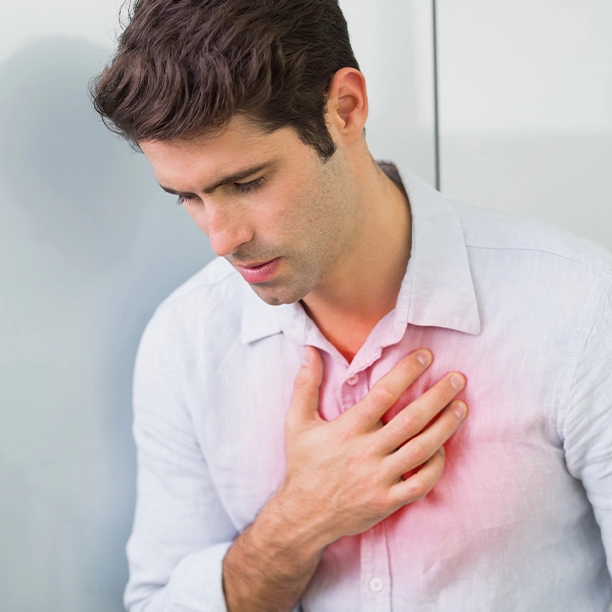 International Patient
International Patient Patient Portal
Patient Portal Lab Reports
Lab ReportsSpecialities

-
EMERGENCY : 0129-3512000
|
24x7

Chest discomfort or chest pain may cause concern, often leading individuals to consider heart-related problems. However, chest pain can arise from a range of conditions, some of which are serious while others are less critical. At Accord Hospital, we aim to offer crucial insights to assist you in comprehending and addressing chest pain efficiently, reason we consider as best hospital for chest pain treatment. Accord Hospital is renowned for housing the finest chest pain specialists in the region.
Chest pain can manifest in multiple ways depending on its cause. Some common symptoms include;
Chest pain can be classified into different types based on its characteristics;
Understanding the underlying root cause of chest pain is crucial for effective treatment.
If you experience any of the types mentioned above of chest pain, seeking medical attention is vital.
